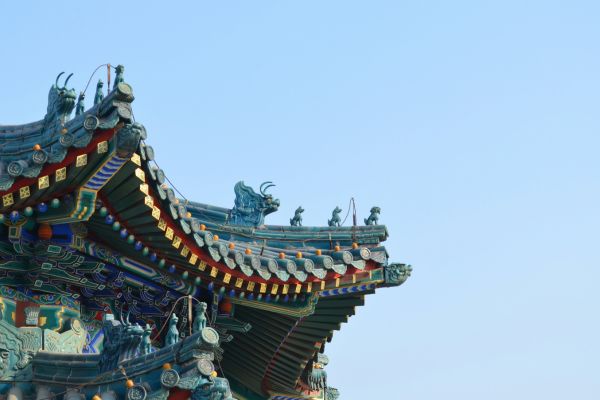
Yes, Peppa Pig is a well-known trademark in China and enjoys cross-category protection, says a Shanghai court in the case of Entertainment One UK Limited (2019).
In January 2021, Shanghai Intellectual Property Court confirmed that the trademark related to Peppa Pig, a brand held by a British company, was a well-known trademark in a trademark infringement case.
From Entertainment One UK Limited v. Chen Jianguang, Shanghai Xunmeng Information Technology Co., Ltd. (2019) Hu 63 Min Chu No. 674 ((2019)滬73民初674號), we can learn that how a trademark registered by a foreign right holder in China can be recognized by courts as a well-known trademark.
1. Case background
The plaintiff, Entertainment One UK Limited (“Entertainment One”), is the right holder of the registered trademark, “Peppa Pig”.
In 2014, Entertainment One registered the trademarks in China subject to the ninth category, namely, computer software, electronic publications, animation, etc., in relation to the brand, Peppa Pig.
In 2016, Entertainment One introduced the animated television series, Peppa Pig, into China, where Peppa Pig was broadcast on China Central Television (CCTV), the country’s largest broadcaster, and on several Chinese major mainstream online video websites. The cartoon has been viewed more than 10 billion times simply on online video websites. The cartoon, Peppa Pig, is one of the most popular programs on several online video platforms.
Entertainment One has also authorized some Chinese companies the production right of derivative products such as toys, building blocks, audio products, and books. For the whole year of 2019, the number of buyers of such products on the Chinese e-commerce platform, Tmall, reached 20 million.
The defendant, Chen Jianguang (“Chen”), is the operator of “Qing Hua Jia Ju” (青花家居), an online shop on the e-commerce platform Pinduoduo (拼多多) in China, selling lamps and related products. He was found to sell products with the name of “Creative Cartoon Peppa Pig LED Desk Lamp”.
The other defendant, Shanghai Xunmeng Information Technology Co., Ltd. (“Xunmeng Company”), is the operator of the aforementioned e-commerce platform, Pinduoduo.
On 20 Sept. 2019, Entertainment One filed a lawsuit with Shanghai Intellectual Property Court, demanding the two defendants to stop committing acts of infringement and compensate for the losses.
In the lawsuit, Entertainment One said that although it did not register Peppa Pig as a trademark subject to the category of lamps and lanterns, Peppa Pig and its related trademark had enjoyed a substantial reputation as a well-known trademark under the category of electronic publications (downloadable) and animated cartoons.
Therefore, the court should afford cross-category protection for such trademark, and accordingly, identify Chen as a seller of committing acts of infringement, and order Xunmeng Company, as a sales platform, to bear joint and several liabilities with Chen.
On 25 Jan. 2021, the court rendered a judgment of first instance, in favor of Entertainment One’s claims that Peppa Pig and related trademarks are recognized as well-known trademarks, accordingly affirming Chen as a trademark infringer and ordering Chen to be liable for compensation. As Xunmeng Company promptly removed the products with infringing trademarks on Pingduoduo platform, it did not have to bear responsibility.
According to the disclosure of China’s Supreme People’s Court (SPC), neither party appealed after the judgment.
2. Court opinions
(1) This case involves the recognition of well-known trademarks.
The court held that Article 14 of the Trademark Law stipulates that the ascertainment of a well-known trademark shall be made pursuant to the request of the party concerned for the purpose of ascertaining facts for the handling of trademark cases.
According to Paragraph 1 of Article 2 of “Interpretation of the Supreme People's Court on Several Issues Concerning the Application of Law in the Trial of Civil Dispute Cases Involving Well-known Trademark Protection” (最高人民法院關于審理涉及馳名商標保護的民事糾紛案件應用法律若干問題的解釋), with respect to a lawsuit filed on the ground of violation of Article 13 of the Trademark Law, where the party concerned claims that the trademark is well-known as a factual basis, the court may, according to the specific circumstances of the case and when it deems necessary, make a decision on whether the trademark involved is well-known.
In this case, Entertainment One believes that Peppa Pig trademark is a trademark registered subject to the ninth-category products, and the product with alleged trademark infringement is a table lamp, which is not subject to the ninth-category products, so this case involves cross-category protection. Therefore, in hearing this case, it is necessary for the court to identify whether Peppa Pig, the No. 12330790 trademark, is a well-known trademark.
(2) Peppa Pig trademark meets the requirements for well-known trademarks.
The main standard for determining whether a trademark is well-known is whether the said trademark enjoys a relatively high reputation in the market and is well known by the relevant public.
According to Article 14 of the Trademark Law, the following factors shall be considered in the recognition of well-known trademarks:
i. the extent of the relevant public’s familiarity with the said trademark;
ii. the duration in which the trademark has been constantly in use;
iii. the duration, extent and geographical scope of any promotional campaign carried out for the said trademark;
iv. the records of protection provided for the trademark as a well-known trademark; and
v. other factors making the trademark well-known.
The Court found that the evidence presented by Entertainment One sufficiently proved that:
i. The cartoon Peppa Pig has a large viewership in China, with a very high broadcast rate;
ii. A large number of media across the country continuously promote Peppa Pig cartoons, books, DVDs, and the derivative products in relation to Peppa Pig;
iii. Entertainment One has authorized a number of Chinese companies the use of Peppa Pig, and the derivative products have been extremely popular with consumers;
iv. Peppa Pig trademark has been protected by administrative and judicial authorities in China.
Therefore, the court affirmed that the plaintiffs and their authorized companies’ continuous publicity and use of the Peppa Pig trademark, which has enjoyed extremely high popularity and reputation in cartoons and electronic publications (downloadable), met the statutory requirements for the recognition of well-known trademarks, and should be recognized as a registered well-known trademark.
3. Our comments
Once the trademark is recognized as a well-known trademark, it can obtain cross-category protection. In other words, although you have registered the trademark only in one category, if others use the trademark in other product categories without your permission, you can still claim infringement of your trademarks.
The case also attracts the attention of the SPC.
In accordance with an article posted by the SPC on its social media account, Shanghai Intellectual Property Court received two thank-you letters respectively from the British Consulate-General Shanghai and Entertainment One.
On behalf of British Consulate-General Shanghai, British Consul General, Chris Wood, wrote a letter to Chen Yajuan (陳亞娟), President of Shanghai Intellectual Property Court, stating that:
“We would like to express our gratitude to Shanghai Intellectual Property Court for its fairness and dedication in the intellectual property case involving Entertainment One UK Limited.”
Nick Gawne, Executive Vice President and General Manager of Entertainment One UK Limited, also sent a thank-you letter to Judge Yang Wei (楊韡) of Shanghai Intellectual Property Court, stating that:
“We express our great gratitude to the judge for proper and detailed examination of the evidence, professional and impartial trial, and we believe the court judgment has played a solid role in legal-awareness campaigns.”
Contributors: Guodong Du 杜國棟 , Liu Qiang 劉強









